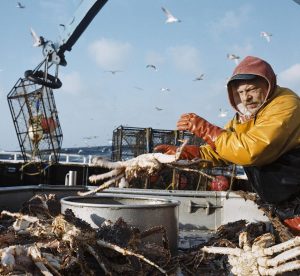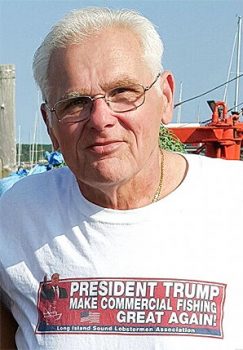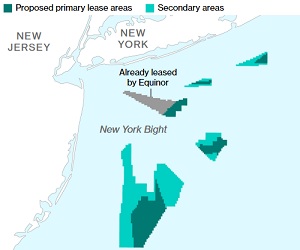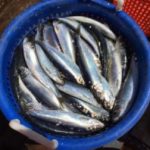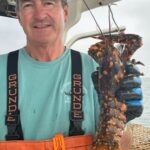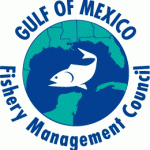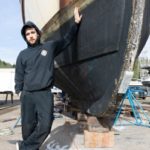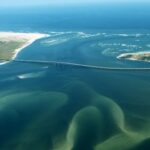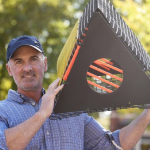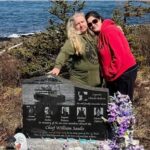Category Archives: Mid Atlantic
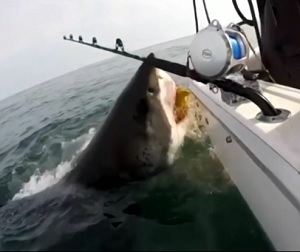
‘Just Enjoy The Moment’: NJ Fishermen Thrilled By Close Encounter With Great White
A group of fishermen off the Jersey Shore coast had a close encounter with a great white shark that suddenly appeared Monday. The five Toms River fishermen were about 30 miles from the shore and nearing the end of a 13-hour day at sea, but the sight of a shark certainly woke them up. It was roughly 18-feet long, about 3,000 pounds and hungry.“When you’re out there in a boat like that with a fish that big, you feel very small,” Video, >click to read<15:54
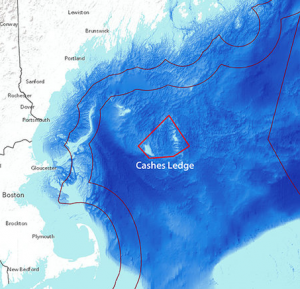
Offshore Wind Farm’s Meteorological Tower To Be Constructed Next Month; Officials Express Concerns At Public Hearing
A 300-foot-plus meteorological tower will be installed about 17 miles off the coast of Ocean City next month in advance of the US Wind offshore wind farm project.,,,“It was a public hearing, but there weren’t a lot of people there because I don’t think there was a lot of notice about it,” he said. “There were some commercial fishermen there and they’re very concerned about the pounding of the pilings. “The commercial fishermen that fish for conch and lobsters and clams etc. are very concerned about losing equipment,” he said. “They are also concerned about the construction and noise scaring off fish and scaring their catch away. That was very evident during that meeting.” >click to read<15:42
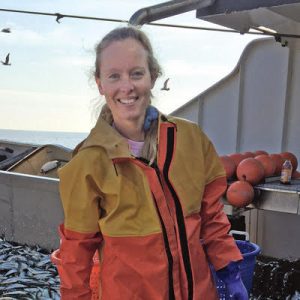 Offshore Wind Projects’ Impact on Fishing Grounds off the Ocean City Coast Discussed – July 18, 2018, After hearing a strong presentation from a noted expert on the impacts of wind farms on commercial fishing, the Mayor and Council seem inclined to strengthen opposition to the wind farms off the resort coast in general.,, Monday’s presentation was spearheaded by Meghan Lapp, who is the fisheries liaison for Seafreeze Ltd., >click to read<
Offshore Wind Projects’ Impact on Fishing Grounds off the Ocean City Coast Discussed – July 18, 2018, After hearing a strong presentation from a noted expert on the impacts of wind farms on commercial fishing, the Mayor and Council seem inclined to strengthen opposition to the wind farms off the resort coast in general.,, Monday’s presentation was spearheaded by Meghan Lapp, who is the fisheries liaison for Seafreeze Ltd., >click to read<
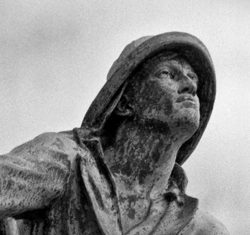
A Fishery Management Proposal
Its frustrating to watch fish regulators on the various fishery management councils continuously cut back on fishermen allocations with no regard for how they will make up for the “scientific” decision that takes revenue from them. I have reached out to various politicians to create a Farm Bill for fishermen, which would be a huge undertaking for the Congress, and in the current political climate, it seems like an impossible task, even though it is needed. In the meantime, the mismanagement continues, and people are pushed closer to exit the industry, which is unacceptable. What I am proposing is to correct this and mitigate the damage caused by the cutback is legislation. This is what I would like to see. Sam Parisi >click to read<12:16
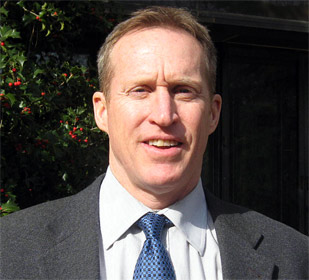
Eric Schwaab Comes Aboard as New Head of EDF’s Oceans Program
“Eric was critical to the success we achieved during my time as NOAA Administrator,” said Dr. Jane Lubchenco, University Distinguished Professor, Oregon State University and former EDF Board Trustee. “His unflappable get-it-done approach makes him notably effective working with a range of stakeholders from fishermen to global leaders.” As head of NMFS, Schwaab led the transformation of U.S. fisheries management including widespread adoption of science-based catch limits and catch shares. EDF was a leading advocate for these reforms, which have driven a dramatic recovery of fish populations and increased catch and profits for fishermen. >click tp read<10:02
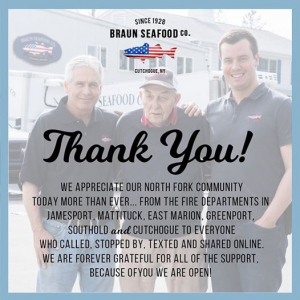
Community Opens Hearts To Braun Seafood After Fire
It’s a story that speaks to the heart and fiber of the North Fork community: After a fire ripped through a storage building at Braun Seafood in Cutchogue Wednesday, not only did owners and staff work tirelessly to open the business just hours later — but the love of the community came pouring in as sea of neighbors, friends and other businesses stepped up to help. Almost immediately, friends and customers turned to social media to urge heading to Braun for take-out dinners or to buy gift cards for Father’s Day, as a way of showing support after a fire that left the fish market and grill intact — but caused major damage to a back storage building. “What makes our company so great, are the people in it,” >click to read<00:02
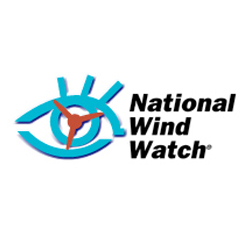
Critics ask: How much for wind power? – Divided on wind cable; Heated talk of climate change and Nimbyism
Simon Kinsella, a resident of Wainscott, a candidate for East Hampton Town Trustee, and a persistent critic of the proposed South Fork Wind Farm, spoke during a press conference Tuesday about his lawsuit against New York State, which seeks to compel the Long Island Power Authority to disclose the cost to ratepayers represented by the proposed wind farm. >click to read< A divide among neighbors and generations was apparent on Tuesday as the New York State Public Service Commission hosted its first information sessions and public hearings on the proposed South Fork Wind Farm,,, On Tuesday, the P.S.C. took public comment here on the wind farm’s export cable. Its landing site has stirred nearly as much opposition in some quarters as has the wind farm itself among commercial fishermen, who say the underwater cable installation threatens their livelihood. >click to read<14:30
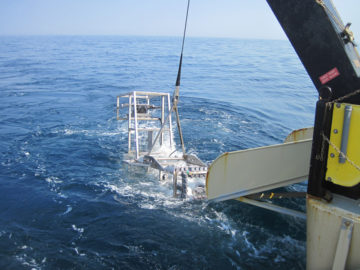
Fisheries Survival Fund: HabCam Failure Threatens 2019 Atlantic Sea Scallop Survey
The loss, recovery, and now electrical failure of the NOAA Northeast Fisheries Science Center “HabCam” habitat mapping camera means that the all-important 2019 Northeast sea scallop survey now continues as a dredge-only survey. The federal survey will thus conclude on June 15 without crucial sampling instruments, including cameras that photograph the ocean bottom. The HabCam, towed just above the ocean floor, provides a non-invasive, extensive, optically-based survey of the Atlantic scallop resource and ocean floor. NOAA Fisheries is working to make the HabCam a centerpiece research and survey tool. >click to read<09:51
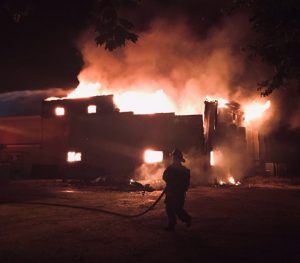
Fire destroys storage building at Braun Seafood in Cutchogue
A fire erupted at around 3 a.m. in a rear storage building at Braun Seafood Co. in Cutchogue Wednesday. Firefighters from departments across the North Fork were continuing to pump water on it as of 6 a.m. Braun Seafood owner Ken Homan said the fire destroyed a portion of a building that houses a large freezer for seafood storage. By 6 a.m. the roof of the building had completely collapsed. Cody Homan, the owner’s son, said the freezer is where the company keeps “so much of what we sell all summer.” >click to read>09:41
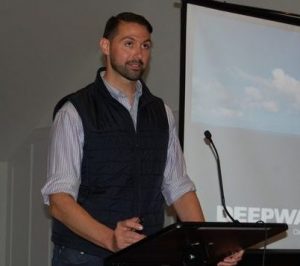
For Fishermen, Wind Farm Debate Contains A Dose Of Inevitability
Discussions of the wind farm among its most dead-set opponents, commercial fishermen, has turned decidedly in recent months, from stopping the project entirely to, instead, identifying ways to limit the negative impacts it wind farm could have—and that was even before the official public input phase of the construction and operations plan had begun. Fishermen from Rhode Island recently inked a compensation agreement with Vineyard Wind,,, The developers of the South Fork Wind Farm have yet to offer any sort of a similar package to fishermen locally, “The only place that doesn’t have any say in the project is New York,” said Bonnie Brady of the Long Island Commercial Fishermen’s Association. “You tell me—what’s wrong with this picture?” >click to read<17:54
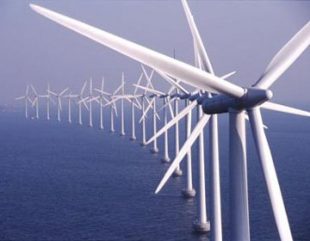
Perfect port an elusive goal for East Coast offshore wind
“Developers have studied all the ports up and down the East Coast several times now. What we’re really looking for is large areas, good capacities, no bridges and deep drafts. And if someone has that, please come forward,” said Christer af Geijerstam, president of Equinor Wind US, which holds leases for offshore wind development off the coasts of Massachusetts and New York. “The problem is that it’s hard to find places that tick all of those boxes.”,,, At least part of the East Coast supply chain will meet the water in Massachusetts, where public dollars financed a port facility in New Bedford tucked away in a walled-in harbor that is already crowded with a scallop fleet that has made it the wealthiest fishing port in the country. >click to read< 11:44
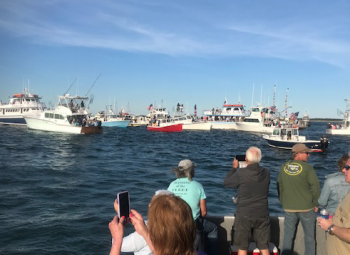
Sixty-Something: Participating In This Year’s Montauk Blessing Of The Fleet
Every late spring, for the last sixty years, there has been a pure Montauk tradition called the Blessing of the Fleet. It is both a memorial for lost local fisherman and boaters and the celebration on a new fishing season and a blessing from the almighty that it be a safe one. There are five representatives from different religious sects who pray and bless the commercial and charter boat fleet of Montauk as they circle the boat with the clergymen in the harbor. It is quite an emotional and colorful ordeal. >click to read<15:43
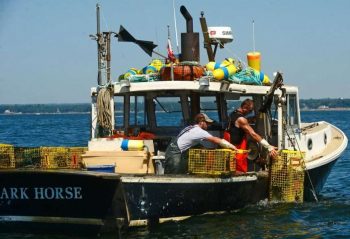
Toxic lobsters? – Long Island Sound dumping dispute nears tipping point
Connecticut says the new underwater dump site is needed to maintain the state’s economic development effort – including its lucrative submarine construction business at Electric Boat’s shipyard,,, New York says the site will be harmful to its ecology and tourism, and Connecticut could, and should, dump the material it dredges up somewhere else.,,, Toxic lobsters? Lobstering is still done in Long Island Sound, though there are far fewer lobsters than in the past. >click to read<10:08
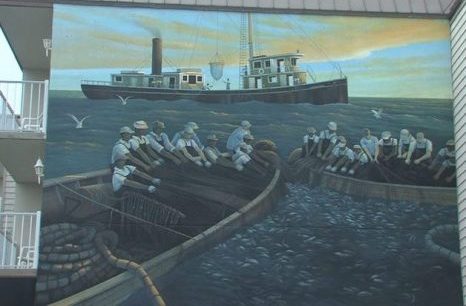
Menhaden Mural and Otis Smith Plaque Unveiled in Lewes
Art and history come together on a new mural dedicated to and inspired by the fishing industry and a former mayor. On March 25th, Damon Pla began working to capture the history of Lewes’ Menhaden Fishing Industry in a mural on the side of the Beacon Motel. About 8 weeks and many rain showers later and he’s ready to share it with the town. ,,,, “The Menhaden Fishing Industry was part of Lewes’ history in the 1900s,” he explains. “It also charts the history of the owner of the fishing industry, who was Otis Smith.” Smith was the town’s Mayor for 18 years. >click to read<19:08
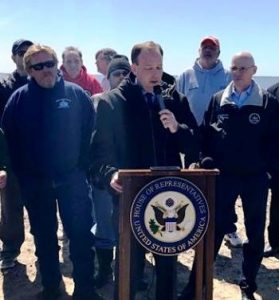
Zeldin: The tide must turn for New York fishermen
In a district nearly completely surrounded by water, our waterways are our way of life, supporting tens of billion of dollars in economic activity per year. For our local recreational and commercial fishermen, it is how they make a living and provide for their families, but year after year the livelihood of our community’s anglers has suffered. New York anglers have been put at a great disadvantage, suffering at the hands of lower quotas and allocations than neighboring states. That means when two boats are fishing next to each other, one may be allowed to catch up to double the amount of the other because it is landing the fish in New Jersey or Connecticut instead of New York. >click to read<13:56
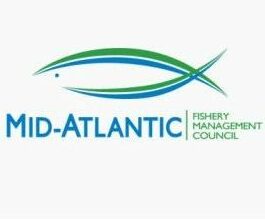
Mid-Atlantic Fishery Management Council meeting in New York, N.Y. June 4-6, 2019
The public is invited to attend the Mid-Atlantic Fishery Management Council’s meeting to be held at Yotel Hotel 570 Tenth Ave (at W 42nd), New York, NY 10036, Telephone 646-449-7700 , Briefing Materials & Agenda Overview Agenda >click here< Attend Meeting with Adobe Connect >click here< To Listen Live. 21:00
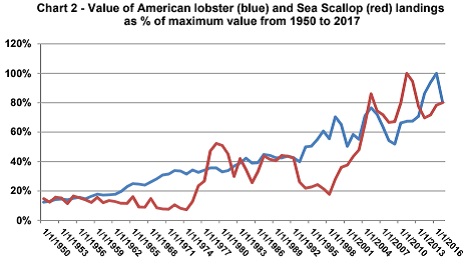
After over forty years of NOAA/NMFS management how are we really doing? Nils Stolpe
The Magnuson-Stevens Fishery Conservation and Management Act – I have seen the focus of government fisheries manage-ment increasingly shift away from the fishermen to the fish. The provisions of the Act as it was originally written were put in place to allow the U.S. fishing industry to regain control of the fisheries in the United States’ highly productive coastal waters,,, The legislation was singularly effective, so effective that within ten years or so of its passage the greatest portion of our domestic fish and shellfish production was being harvested by U.S. fishermen on U.S. vessels. This success was sold to the U.S. public – and the U.S. politicians – as an assault on the “sanctity” of our coastal waters by a burgeoning environmental industry that was (and still is) engaged in non-governmental empire building. This has resulted in a handful of multi-national ENGOs (Environmental Non-Governmental Organizations) that have become at least as influential as the fishing industry in national and international fisheries management. >click to read, and review the links and graphs<16:10
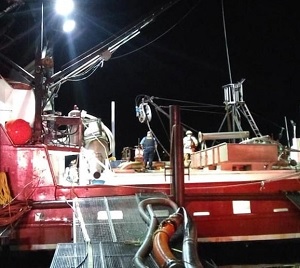
Boat Fire In Point Pleasant Beach (UPDATED)
Firefighters responded to a fire in a commercial fishing boat docked in Point Pleasant Beach on Friday, officials said. The fire happened just after 2 a.m. when Point Pleasant Beach Fire Department Stations 42 and 43, along with police and the Point Pleasant Beach First Aid Squad, were dispatched to a fire in a commercial fishing boat that is docked on Channel Drive, officials said. The Ugly Duck, which is considered a Bunker Boat, >click to read<16:24
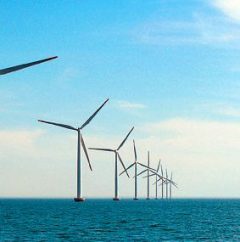
Wind farm critics step up efforts – Citizens for the Preservation of Wainscott launch website, wainscott.org
In the Town of East Hampton’s easternmost hamlet, Montauk commercial fishermen say the proposed South Fork Wind Farm may destroy their livelihood, citing potential disruptions to fish populations and migration patterns as well as the danger to navigation represented by its 15 turbines, each of them hundreds of feet tall and driven deep into the ocean floor. At the other end of the town, many Wainscott residents are upset that Orsted U.S. Offshore Wind has identified the ocean beach at the end of Beach Lane as the preferred site to land the wind farm’s export cable. A group called Citizens for the Preservation of Wainscott has launched a website, wainscott.org, which lays out a mission statement, action plan, and petition opposing the site. >click to read<15:52
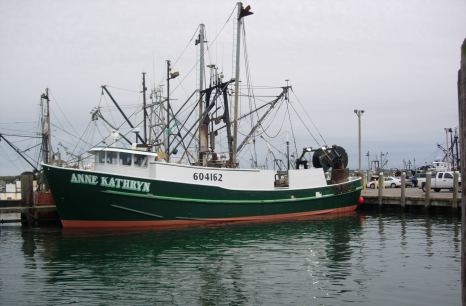
OUT TO CATCH THE LAST FISH? Fisheries “expert’s” anti-fisherman rhetoric gets taken to task!
“…most fishermen always want to catch more fish, regardless of how many there are.” This quote from the fisheries “expert” in the article, Warming waters spark marine migration, fish wars >click to read<on the warming ocean, and Joel’s subsequent comment, “And here in lies the problem. Look at what this cubical entrenched pencil pushing empty suit thinks of fishermen. Folks like this need to be taken to task”, inspired a re-post of this anti-fishing propaganda article, OUT TO CATCH THE LAST FISH? It’s a few years old, but sadly, as current as ever! To be a fisherman, these days, is to have first-hand knowledge of bias and mindless prejudice. Manipulating commercial fishing to save the stocks from “endangerment” and worse, has often been job justification for the political and personal agenda-driven, obsequious, career-climbing government fisheries “scientists” and managers. “Destructive” commercial fishing is also a handy foil for corporate style environmental groups’ fund raising efforts; and diminishing the importance of domestic commercial fishing is also a necessary step in the energy industry’s march into the sea. >click to read< Thank you, Dick.17:02
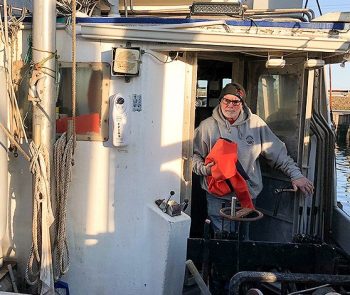
Warming waters spark marine migration, fish wars
The warming waters associated with climate change are creating big ripple effects across fishing communities, including in this picturesque seaside town with a long fishing history. Take Joel Hovanesian, who last fall docked his 40-foot trawler at the Port of Galilee, calling it quits after a 42-year career of chasing fish.,,, Up and down the Atlantic coast, commercial fishermen are heading for the exits these days, irked by government rules and regulations that they say haven’t kept pace with the changes. Fishermen have long battled over fish allocations, but the fights have become more intense and complicated due to climate change. As more fish head north in search of cooler waters, fishermen complain that quotas have not kept pace with shifting stocks, making it harder for them to make a living and bring fish to market. >click to read<15:46
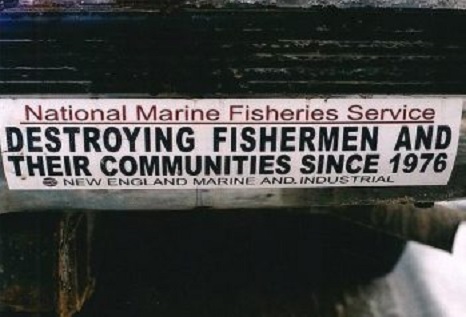
How to wreck an industry – Catch shares lead to consolidation of Alaskan fisheries
A recent study documenting consolidation and specialization in Alaska’s fisheries over the past three decades illustrates a broader trend taking hold in coastal communities across the country. Catch share programs, a new fisheries management system, are turning fishing rights into tradable commodities, driving up the cost to fish and consolidating fishing rights into the hands of a few wealthy owners. For instance, in Alaska’s Bering Sea crab fishery, just four companies own 77 percent of the rights to fish a single crab species. >click to read<11:30
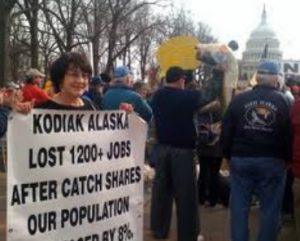
Our coastal communities are drowning, largely thanks to tradable quotas and licences.
British Columbia’s coastal communities, long dependent on fishing for their livelihoods, are in serious trouble: population down, youth retention down, incomes down, investment down, infrastructure down, health and well-being down. It’s now almost impossible for young people to enter the fishery because of the high cost of purchasing or leasing the Individual Transferable Quotas (ITQs) attached to most fishing licences. ITQs are permits to catch a certain quantity of fish, and can be freely traded or leased. Coastal communities that used to have dozens of fishermen now may have a handful at best. The boatbuilding, repair, and gear supply businesses are likewise disappearing. How did this happen to our once prosperous coast? East Coast, best coast?>click to read<12:32
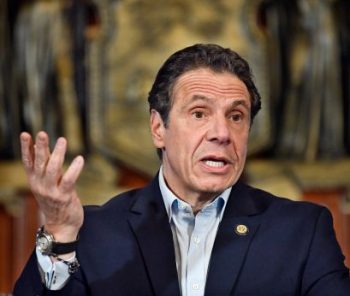
New York’s energy policy depends on an impossible fantasy
Last Wednesday, the Cuomo administration blocked construction of the proposed Northeast Supply Enhancement project, a 24-mile gas pipeline that would run from New Jersey across New York Bay to near the Rockaways.,, was cheered by environmental groups,..Wind-energy projects, too, are facing fierce opposition.,,, What about offshore? Cuomo wants 9,000 megawatts of offshore wind installed in New York waters by 2035. But the Long Island Commercial Fishing Association and other fishing groups are adamantly opposed,,,In short, renewables can’t replace natural gas. >click to read<20:58
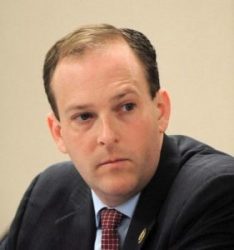
Rep. Zeldin Blasts NY’s ASMFC Delegates for Failure to Deliver for NY Fishermen
Today, Congressman Lee Zeldin (R, NY-1) blasted New York’s delegates to the Atlantic States Marine Fisheries Commission (ASMFC) following the conclusion of this month’s spring meeting, during which no progress was made in rectifying New York’s already inequitable quotas for species across the board, including Black Sea Bass, Striped Bass and Fluke. >click to read<19:10
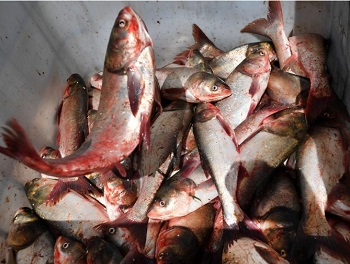
Luciano: Could Asian carp help a desperate Maine lobster market?
Officials in Illinois and Maine hope to soon announce a breakthrough that in both states could help solve aquatic challenges and boost economics. The news could especially bring a boon to central Illinois. In Illinois, invasive Asian carp choke the Illinois River. In Maine, the lobster industry faces a crisis for a sudden lack of lobster bait. If all goes well, commercial fishers in Illinois soon could be harvesting and shipping tons of Asian carp to Maine. >click to read<
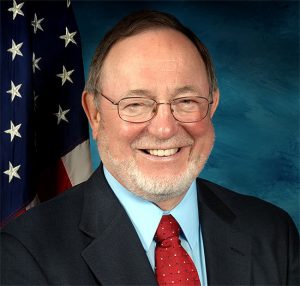
Rep. Young fights fish farms
In his 46 years as Alaska’s lone representative in Congress, Don Young helped toss out foreign fishing fleets from Alaska waters with the onset of the Magnuson-Stevens Fishery Conservation and Management Act in 1976, and today he is intent on doing the same with offshore fish farms. The MSA established an ‘exclusive economic zone’ for US fleets fishing from three to 200 miles from shore. Young’s effort follows a push that began a year ago by over 120 aquaculture and food-related industries to have lawmakers introduce an Advancing the Quality and Understanding of American Aquaculture (AQUAA) Act, which failed to get any traction. The campaign is organized under a new trade group called Stronger America Through Seafood and includes Cargill, Red Lobster, Pacific Seafoods and Seattle Fish Company. >click to read<15:50
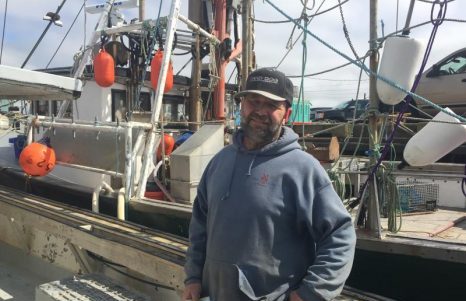
They’re just pouring money into it -“A Big Fugazi”: Why Fishermen Still Can’t Get Behind Offshore Wind
“This is going to affect every fisherman and fishes around these windmills,” Schneider says. “These crabs, these lobsters, seismic activity bothers them I believe and it’s not benefiting any one of us except a foreign company.” Schneider’s not alone. Fisherman along the Rhode Island and Massachusetts coast fear they could lose a significant portion of their catch. This is especially true for squid fishermen because the wind farm area will be constructed near their fishing grounds.,,,Dr. Kevin Stokesbury is a professor of fisheries oceanography at the University of Massachusetts, Dartmouth. He says the wind farms will be installed in a fairly large homogenous environment in the sea floor, which will change the environment. >click to read<13:29






